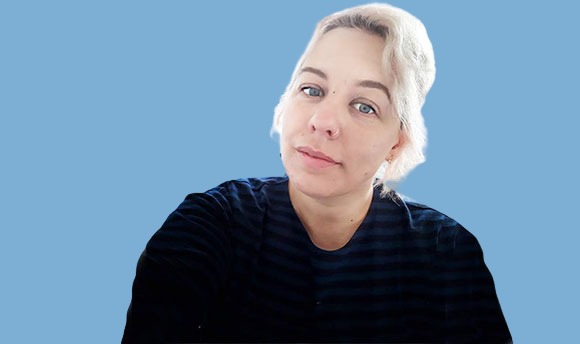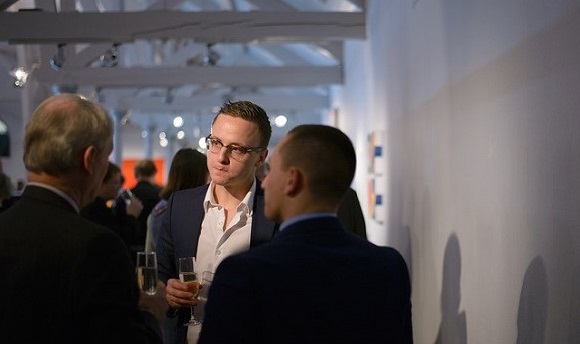Play Therapy - MSc
If you have experience of working with children and families, this MSc in Play Therapy course will help you to develop your expertise and move into a stimulating career as a play therapist.
Working as a play therapist is an immensely rewarding and enriching career. This course will teach you how to work safely and therapeutically with children and families with complex needs. The course is a collaboration between With Kids (a Scottish charity) and the MSc Art Psychotherapy at QMU.
You can study part time over three years and will benefit from placements that will enhance your learning experience and better prepare you for your future career.
Why QMU?
- Professional accreditation and registration: This course is accredited by the British Association of Play Therapists and on graduation you can register as a Full Member of the British Association of Play Therapists (BAPT).
- Staff expertise: You will enjoy learning on a course taught by qualified and experienced BAPT-registered play therapists, who bring teaching to life with clinical experience and case material.
- Placements: Your practice placements are an invaluable way of consolidating the theoretical knowledge you learn from weekly teaching, experiential opportunities and small group tutorials.
- Employability: The opportunities for employment as a play therapist continue to develop rapidly and graduates find themselves working in a variety of settings.
- Flexible delivery: The course is designed to be flexible, allowing you to combine your studies with your current work role.
Studies show that 20% of children have some form of emotional, behavioural or mental health problem that can prevent them fulfilling their full potential. Furthermore, children who experience mental health issues can go on to develop serious mental health issues as adults. Play therapy provides an opportunity for children experiencing emotional and behavioural issues to work through difficult experiences and feelings with a trained therapist and enabling a more positive outcome.
The key purpose of the profession of play therapy is defined by the British Association of Play Therapists (BAPT):
‘Play therapy is the dynamic process between child and play therapist in which the child explores at his or her own pace and with his or her own agenda those issues, past and current, conscious and unconscious, that are affecting the child’s life in the present. The child’s inner resources are enabled by the therapeutic alliance to bring about growth and change. Play therapy is child-centred, in which play is the primary medium and speech is the secondary medium.’
This innovative course is structured to develop your skills through a variety of modules and learning experiences. You will gain a thorough understanding of the fundamental inter-relatedness of the theory of a child’s physical, social and emotional world, and will develop the skills to work effectively and therapeutically to enhance emotional wellbeing and transform life chances. You will work directly with children and families with increasing complexity on practice placement over the three years and this will include clinical observation of a child/children from infanthood to primary.
Applicants should possess qualities that enable them to undertake study in an appropriate manner and at the appropriate academic level. Thus, the students recruited onto this course will be committed, diligent and enthusiastic and will also possess the skills, curiosity and drive to enhance their knowledge base.
Structure and exit awards
It is possible to exit with a PgCert (60 credits) after one year, a PgDip (120 credits) after two years and an MSc (180 credits) at the end of three years. You are only eligible to apply for registration with the British Association of Play Therapists (BAPT) and practice as a play therapist with an MSc.
Teaching, learning and assessment
The teaching and learning approaches used encourage you to be an independent, participative learner. These approaches will engage you in lectures, problem-based learning, workshops, small group discussion, seminars, experiential groups, observation and skills practice. The course team aims to enable students to learn from and with others through supportive peer assessment and feedback, guided by the tutor.
Assessment methods include case study analysis, collaborative presentation, developmental theory essays, observation analysis and play therapy practice placement portfolio. As a postgraduate student you will predominantly be working independently, but there is a strong structure for academic support.
Placements
You will complete three practice placements. Placements can take place in your workplace, local schools, nurseries or other agencies that offer services to children. You can set up your own placements, arrange them with support from With Kids, or With Kids can allocate a placement for you.
Teaching hours and attendance
The course runs over three years part time. You will attend the learning centre at With Kids in Glasgow one day a week over the first two years. In addition, you will undertake play therapy practice placement, observations and attend clinical supervision individually or in small groups. You will be expected to attend your own personal therapy for the duration of the course, and 100% attendance is expected at all elements of the MSc Play Therapy.
Class sizes
Normally, there are up to 20 students undertaking the course each year, ensuring that individuals receive excellent support and benefit from interaction with other students.
Teaching staff
You can read more about the teaching staff on this course at the bottom of this page. Please note that teaching staff is subject to change.
You will study the following modules:
Year One
- Practice, Theory & Placement 1 (40 credits): An understanding of therapeutic practice and play therapy theory will be developed through on-placement practice, lectures, skills practice and clinical supervision. This module includes preparation for placement practice, the development of a range of play therapy skills as well as introduction of the implementation of professional codes of conduct. You will be working with two children for 8 weeks and 10 weeks.
- Child Development & Observations 1 (20 credits): This module focuses on child and adolescent development using direct observation and grounded in child and adolescent developmental and clinical theory including attachment theory, stage theories of development and object relations theorists. As well as direct teaching, there are experiential elements to the teaching and learning methods. You will undertake 20 direct observations of the infant – carer relationship in order to reflect upon the importance of the early attachment relationship. These sessions will require detailed write ups and participation in observation seminars
Year Two
- Practice, Theory & Placement 2 (20 credits): This module will enable you to deepen your knowledge and understanding of therapeutic practice and play therapy theory through lectures, supervision and on-placement practice. This will include consolidating a range of play therapy skills as well as knowledge of professional codes of conduct. The placement practice experience will link with the clinical play therapy theory developing a deeper understanding of the unconscious internal world of the child, as well as symbolic communication. You will develop an advancing capacity to facilitate a therapeutic relationship and to evaluate the therapeutic process. The supplementary skills required to support a therapeutic intervention are also developed, eg meeting with parents/referrer, assessment, report writing. You will work with two children for 15 sessions and 20 sessions.
- Child Development & Observations 2 (20 credits): This module focuses on the complexity of child and adolescent development in considering the impact of adverse conditions and experiences in the light of child and adolescent developmental and clinical theory. Students will explore the wider context for the child in relation to society, diversity, disability as well as health and environment while considering relevant legislation, ethics and social policy all in the context of play therapy practice. The module will use recent relevant research and literature to provide a learning framework for exploration. There will be a total of 10 hours of observations with children at two different stages of development, pre-school and primary. These will require detailed write ups and attendance at observation seminars.
- Play Therapy Research, Theory & Practice (20 credits):
This module focuses on exploring theoretical links with play therapy practice. You will be introduced to a range of qualitative and quantitative research methods, with particular reference to those methods most commonly used in play therapy research. There will be a focus on play therapy research and professional development which inform the advanced understanding of practice in the context of a theoretical perspective. The links between theory and practice will be explored through discussion groups, papers and individual journals. This module will be completed over 3 semesters. Two semesters in 2nd year and the 1st semester in 3rd year. - Theory & Practice of Person-Centred Health and Wellbeing (20 credits): This module will encourage you to engage in the critical exploration of the following topics:
- Western theories of personhood from different philosophical perspectives and key concepts of person-centredness. These will be used as a starting point for the discussion of issues relating to practice.
- Person-centred practice at individual, team, organisational and systems levels, including strategic frameworks for person-centred practice.
- Understanding ‘self’ and what it means to practice as a person-centred practitioner (relational aspects of care, judgement and ethical decision-making, the development of expertise).
- Wellbeing and salutogenesis, and experiences of these in health and wellbeing systems.
- Research knowledge and critical appraisal skills required to critically synthesise the different sources of knowledge, including qualitative and quantitative research evidence that inform and support the development of practice.
- Facilitation theories and practices for developing healthful cultures.
- Critical and creative learning about practice development.
- Quality improvement methodologies for transforming person-centred cultures and practices.
Year Three
- Practice, Theory & Placement 3 (20 credits): This module will enable you to develop advanced knowledge and understanding of therapeutic practice and play therapy theory through lectures, clinical supervision and on-placement practice. This will include consolidating a range of advanced play therapy skills, knowledge of professional codes of conduct and on placement practice. The aim of this module is to explore further facets of Play Therapy skills, focusing on particular aspects of the role and work of a play therapist; preparing you for professional practice as you emerge from the training as a qualified Play Therapist. You will undertake a 30-session practice with a child who is experiencing significant difficulties OR work with two children, one child for 25 sessions experiencing significant difficulties and one for 10 sessions experiencing little difficulties.
- Dissertation (60 credits): This module is weighted heavily towards your own independent study. It may take the form of the following five options, subject to pathway variation and availability:
- a practice-based project
- a review of literature
- an empirical study
- a portfolio thesis
- an Arts-based thesis
Option A - Practice-based Project
This dissertation option focuses on experience from practice-based learning and includes two sub options:
- Option A1: Single case study / case study series of play therapy work - Case study work may vary from an in-depth clinical case study to a series of case studies with a clear focus on a theme that has emerged from your play therapy work. This could also include an assessment component (e.g. using an assessment method to trace client’s development as part of play therapy) as long as this does not require change to your sessions.
- Option A2: Reflections on play therapy practice more broadly - Such reflections have a wider focus (beyond focusing on specific clients or sessions) to consider dimensions of play therapy service provision, including the positioning of the service within the wider multi-disciplinary team and the organisation, as well as quality improvement initiatives. This could include a service evaluation component as long as no change to play therapy sessions is required. Such evaluation would typically involve an exploration of the service, its perceived impact and ways of working. You need to check if review approval is needed by the host organisation and consider potential implications on your Dissertation timeline.
Option B - Literature review
This dissertation option is an in-depth critical evaluation and review of current literature focusing on a self-selected topic of enquiry which will contribute to, and advance, understanding of the subject, field and/or profession. You will follow one of the following sub-options:
- Option B1: Narrative/traditional literature review - Theoretical exploration of a specific topic by reviewing existing literature. There is no need for systematic data collection and analysis method. As such literature search may not need to be comprehensive and may not include quality assessment. Presentation of the review findings is typically through narrative and can be thematically organised.
- Option B2: Bibliographic research - Research exploration of a specific question through qualitative and/or quantitative analysis of existing literature. This sub-option requires a 5 detailed research design including the articulation of a research question as well as of data collection and analysis method, including inclusion/exclusion criteria. In this case, literature is treated as ‘data’. Presentation of the review findings is typically through narrative, tables, and figures.
Option C - Empirical study
This dissertation option is a small-scale research study focusing on a specific topic of investigation. After careful planning and following research ethics approval, you will generate new data by involving human participants. This should be non-invasive and low-risk research and therefore should not introduce a new intervention or any changes to your play therapy sessions. This study should not involve people who i) lack the mental capacity to consent for themselves, ii) are under 16 years old, or iii) participate in their capacity as NHS patients.
Option D - Portfolio
This dissertation option involves the creation of an e-Portfolio reflecting on your personal development through practice-based learning in relation to an identified theme. This can draw on reflective journal information as well as materials emerging from arts-based methods and processes.
Auto-ethnographic approaches can support the development of this portfolio. Personal reflections and insights need to be clearly informed and guided by existing literature and evidence in the field, as well as your critical commentary regarding implication for ongoing research and development.
Option E - Arts-based thesis
An arts-led study where methods and findings are underpinned by an in-depth arts-based methodological approach and design. This study is built as an e-portfolio and may take the form of an empirical project involving human participants.
It will be directed by a question connected to a self- selected topic of enquiry which will contribute to, and advance, understanding of the subject, field or profession. Reflexivity and aesthetic engagement, as well as self and social critique, are key elements of the artistic enquiry as evidenced in the produced arts processes and outputs and their related critical commentary.
The opportunities for employment as a play therapist continue to develop rapidly. Some play therapists work within a range of statutory, government funded or voluntary and independent organisations – for example, within fostering and adoption services, schools and children’s centres, in hospitals, hospices or community contexts as well as child and adolescent mental health services, social work and other social services teams.
A number are employed directly by children’s charities and private children’s residential homes. Many play therapists also work independently in private practice or are commissioned by agencies to provide services for specific groups of children. A small number of play therapists in the UK work as academics, teachers and clinical supervisors.
For further information, visit The British Association of Play Therapists website.
Entry requirements
To apply, you should be a professional with relevant qualifications and/or degree in a related discipline together with a minimum of two years of post-qualifying experience in, for example, social work, teaching, educational psychology, clinical psychology or nursing.
Alternatively, you should have at least five years’ experience working face to face with children, young people and their families/ carers.
This course is only open to applicants who do not require a Student Visa.
Interview: Individual interviews form part of the selection process.
Other requirements
A satisfactory criminal records check from the Protection of Vulnerable Groups (PVG) Scheme, an occupational health check and personal indemnity insurance (normally through membership of the professional body) are required.
Fees
For fees information please contact With Kids.
Other information
- The cost of the PVG check and the cost of professional indemnity insurance is the responsibility of the student. For more information on this, visit the PG 2025 fees page on our website.
- The additional costs associated with placement travel and accommodation are the responsibility of the student.
Applying for this course
Applications should be made to With Kids directly.
Application deadline
None
- The delivery of this course is subject to the terms and conditions set out in our 2025/26 Entry - Terms and Conditions (Postgraduate).
- The information on this page is correct at the time of posting (October 2024) but is subject to change. In the event that modules change, QMU will seek to use reasonable endeavours to ensure that there is no detrimental impact on students. Please keep an eye on this page for updates.
Become your best you: study at QMU
Course Overview
Join us at one of our Postgraduate Open Events
Find out about online and in-person opportunities to meet with us to find out more about our postgraduate courses and study at QMU.
Postgraduate Open Events - More Info and Bookings







